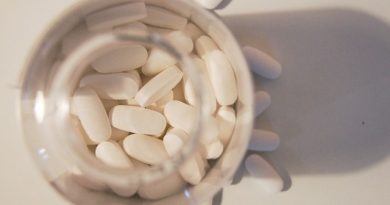The Psychological Impact of Aesthetic Treatments
Introduction:
Aesthetic treatments are becoming increasingly popular worldwide, as individuals strive to enhance their appearance and boost their confidence. Aesthetic treatments encompass a wide range of procedures, from non-invasive facial treatments to surgical procedures such as liposuction and breast augmentation. While these treatments have the potential to improve an individual’s physical appearance, they can also have a significant impact on their psychological well-being.
Improved Self-Confidence:
One of the primary benefits of aesthetic treatments is improved self-confidence. Research has shown that individuals who undergo aesthetic treatments often report feeling more confident in their appearance and more comfortable in social situations. This increased confidence can have a positive impact on various aspects of an individual’s life, including their relationships, career, and overall happiness.
Reduced Anxiety and Depression:
In addition to improving self-confidence, aesthetic treatments can also reduce symptoms of anxiety and depression. Research has shown that individuals who are dissatisfied with their appearance are at a higher risk of developing psychological disorders such as anxiety and depression. By addressing these concerns through aesthetic treatments, individuals may experience a reduction in symptoms and an improvement in their overall mental health.
Enhanced Body Image:
Aesthetic treatments can also enhance an individual’s body image. Body image refers to how an individual perceives and feels about their physical appearance. Studies have shown that individuals who are unhappy with their appearance are more likely to experience negative body image, which can lead to psychological disorders such as body dysmorphic disorder. Aesthetic treatments can help to address these concerns and improve an individual’s body image, leading to improved mental health outcomes.
Improved Quality of Life:
Another potential benefit of aesthetic treatments is an improved quality of life. Research has shown that individuals who undergo aesthetic treatments often report an improvement in their overall quality of life. This may be due to the increased self-confidence and improved body image that are associated with these treatments. Additionally, aesthetic treatments may also lead to improvements in physical health, such as weight loss after liposuction, which can also improve an individual’s quality of life.
Potential Risks:
While aesthetic treatments can have many positive benefits for an individual’s psychological well-being, it is important to note that there are also potential risks associated with these treatments. One potential risk is that individuals may become too focused on their appearance and rely on aesthetic treatments as a way to boost their self-esteem. This can lead to a negative impact on their psychological well-being if they become overly concerned with their appearance or if they do not achieve the desired results from the treatments.
Another potential risk of aesthetic treatments is that they may lead to unrealistic expectations. While aesthetic treatments can improve an individual’s appearance, it is important to have realistic expectations about the results that can be achieved. If an individual has unrealistic expectations, they may become disappointed with the results and experience a negative impact on their psychological well-being.
Improved Self-Confidence:
One of the primary benefits of aesthetic treatments is improved self-confidence. Research has shown that individuals who undergo aesthetic treatments often report feeling more confident in their appearance and more comfortable in social situations. This increased confidence can have a positive impact on various aspects of an individual’s life, including their relationships, career, and overall happiness.
Reduced Anxiety and Depression:
In addition to improving self-confidence, aesthetic treatments can also reduce symptoms of anxiety and depression. Research has shown that individuals who are dissatisfied with their appearance are at a higher risk of developing psychological disorders such as anxiety and depression. By addressing these concerns through aesthetic treatments, individuals may experience a reduction in symptoms and an improvement in their overall mental health.
Enhanced Body Image:
Aesthetic treatments can also enhance an individual’s body image. Body image refers to how an individual perceives and feels about their physical appearance. Studies have shown that individuals who are unhappy with their appearance are more likely to experience negative body image, which can lead to psychological disorders such as body dysmorphic disorder. Aesthetic treatments can help to address these concerns and improve an individual’s body image, leading to improved mental health outcomes.
Conclusion:
In conclusion, aesthetic treatments can have a significant impact on an individual’s psychological well-being. These treatments can improve self-confidence, reduce symptoms of anxiety and depression, enhance body image, and improve quality of life. However, it is important to be aware of the potential risks associated with these treatments, such as becoming overly focused on appearance or having unrealistic expectations. By working with a qualified aesthetic professional and having realistic expectations, individuals can experience the positive benefits of these treatments while minimizing the potential risks.
Join Us Now: transformationsaesthetics.com




